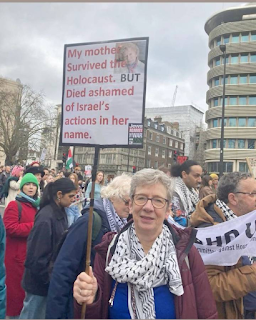Emotional Justice - Esther Armah: AMAZING BOOK!
EMOTIONAL
JUSTICE: A Roadmap for Racial Healing – Esther A Armah – is an incredible, amazing book which I would
highly recommend for most people who are open to working on racism issues. For white men, The Best; for white women –
quite, quite valuable; for others I would imagine equally valuable.
The Author kindly
posing with me – White Privilege Conference – Tulsa – 2024
When Esther
Armah spoke at the Privilege Institute’s 2024 Conference in Tulsa three
months ago, everyone I talked with was amazed at what she said! Robin DiAngelo (“White Fragility”) one of
two Foreward writer in the book, as well as one interviewed in the book, was a
facilitator and attendee at this Conference.
Many other notable people like
Peggy McIntosh, as well as many incredible BIPOC, were also greatly
impressed! I’d never heard of Armah,
and now I share her name with a lot of others!
Lena Dunham shows how a woman upholds,
through intimacy, this narrative of whiteness manifest in white masculinity.
… Murray Miller was a white male writer on the show. Dunham describes him as a dear, supportive
friend, who had affirmed her, her work, and the show. Aurora Perrineau was a Black actress on the
show. She alleges that Murray Miller
raped her when she was seventeen. (p.49) … Dunham intimated that Aurora
was a liar and released a public statement defending Miller on Twitter. (p.50) … Dunham went on to pen an apology in the Hollywood
Reporter. She wrote: “It’s
painful to realize that, while I thought I was self-aware, I had actually
internalized the dominant white male agenda that asks us to defend it no matter
what.” … What Dunham describes is how intimacy allows the language of whiteness
to flourish. … Lena is upholding the white masculinity narrative that requires
white women to believe, bolster, and be there.
(p.57) Toxic
Masculinity …
The
truth, though – and it is not one we have been willing to wrestle with – is that
shedding that toxic masculinity doesn’t necessarily include relinquishing the emotional
relationship to power and race, which is about being dominant, superior and the
single authority. I mean, if you’re
asking white men to tweak a li’l, that’s one thing. We have a multimillion industry of tweaking,
it’s called “diversity.” But if you’re
asking white men to transform – which is what racial repair and healing require – that’s world changing, for all of
us. For white men, that is soul
changing.
Too many
white men are willing to make change as long as that change doesn’t change
them. The language of whiteness teaches
and enshrines that they – white men – are by default the solution, and therefore
never the problem, never the issue. So
they’re not the ones needing changing.
-
Let’s
talk about emotional mammies. It’s an
Emotional Justice term. It’s when women
of the global majority are expected to take care of the feelings of white
people – white women – all men – no matter the cost or consequences to their
being, their body, no matter the harm. (p.97)
White
progressives use political arguments to engage what is actually emotional. The reason there will always be a disconnect
is that they have nothing to do with each other. You can be an ideologically sound, philosophically
pure, and as politically progressive as a person can be, but that has nothing to
do with who you are in the world and a human being when it comes to your
connection to race and whiteness, because that has to do with soul and essence
and fear – and how much white supremacy is rooted in ideas of subjugation and
exploitation and domination. (p.106-7)
The
emotional connection to whiteness protects itself whenever it feels threatened.
The Emotional Justice Template
Work
through your feelings. Flee, deny, being defensive, white
tears, anger. Wanting to run, being
triggered, manufacturing threat, resorting to white tears. Uncertainty, insecurity, frustration,
resentment, reward, change. (p. 114-5)
Blackness
is about deficit and whiteness about world building and people saving. That is the language of rerimagining history
to serve injustice, entrench inequity, and feed white supremacy. This is the politics of whiteness, millions
of global folk get this. That they get
this politically doesn’t always mean that they get it emotionally, and it is in
the emotional that harm is perpetrated … (p.121)
This is an
amazing 147 page book! I have no idea
if the quotes above can help clear readers vision of Esther Armah’s amazing,
heart, spirit, insights, writing, and so much more!
I highly
recommend that potential readers go to Esther Armah’s website at: https://www.theaiej.com/ - and see herself
in her own words! Her book is an excellent
additional potential source of so much!





Comments
Post a Comment